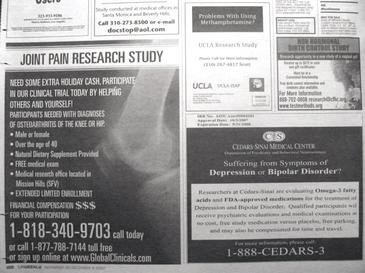Trial participants are medical heroes not test monkeys says ACRO

The industry group made the comments in a video posted on its Youtube.com channel in which it argues that a recent advert by Toshiba, a planned reality TV show called Human Guinea Pigs and a drama – also called Guinea Pigs – are an assault on the research sector and contract research organisations (CRO).
John Lewis, the Association of Clinical Research Organisations’ (ACRO) VP of public affairs, told Outsourcing pharma.com that: “First, let me say that we are not without a sense of humour. That said terms like “guinea pigs” and “test monkeys” should never be used to describe clinical trial participants.
"They are, in fact, medical heroes and without their contributions to science there would simply be no new medicines. Period.”
He cited medical dramas House and Grey’s Anatomy as other shows that have had drug research story lines and added that: “Clinical trials are fair game and of course some dramatic license is expected.
“Our point is that there should be a fair and realistic portrayal of clinical trials within these bounds. The participants should not be characterized as some kind of freaks nor should every clinical trial result in some miracle cure.”
ACRO is more critical of the planned clinical trial reality show in which patients are rewarded for their willingness to take experimental drugs, which Lewis said is “dangerous, unethical and quite possibly in violation of FDA regulations on human subject protections.”
“Television has tremendous power to inform and influence. We would prefer to see this power used for good.”
Impact
Outsourcing-pharma.co asked Lewis what evidence ACRO has of the impact such programmes have on clinical trials and the contract research sector and he suggested the negative effect is cumulative.
“It is very difficult to prove the negative; that someone didn’t volunteer for a clinical trial because they saw the Toshiba commercial, for example.
“Our concern is the cumulative effect of these negative images piling up. At some point you have to believe it will hurt participation. There is a reason cigarette ads are no longer on television; because advertising works and the reinforcement of images and ideas has a tremendous psychological impact.”
He also cited the US’ low trial participation rate – currently less than 4 per cent of the population takes part despite the fact that 50 per cent of all drug-industry sponsored studies are conducted in the country – as a reason the media needs to promote participation in research.





















